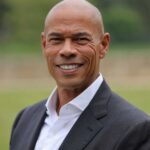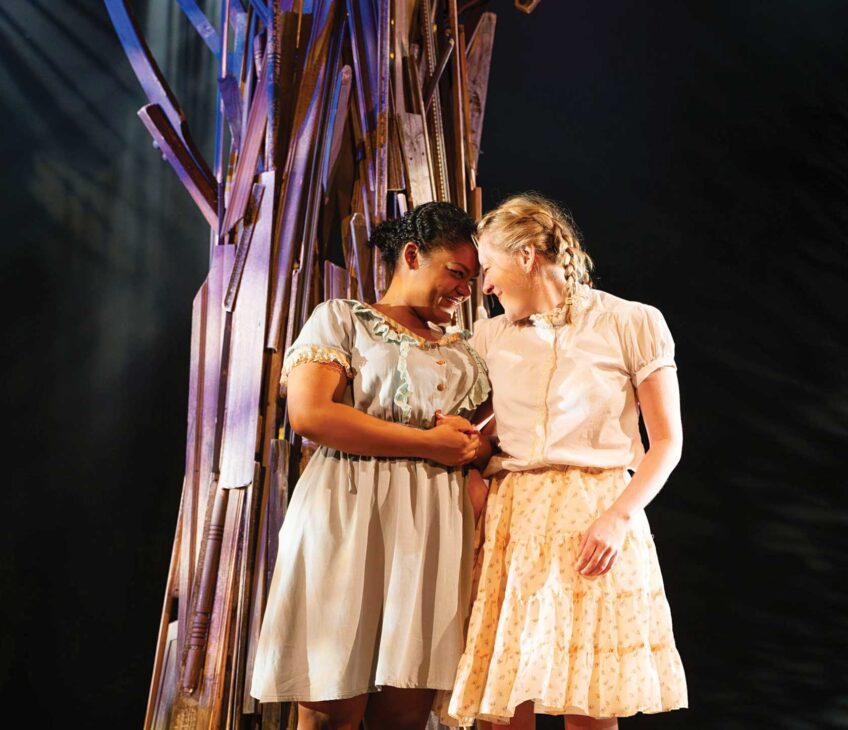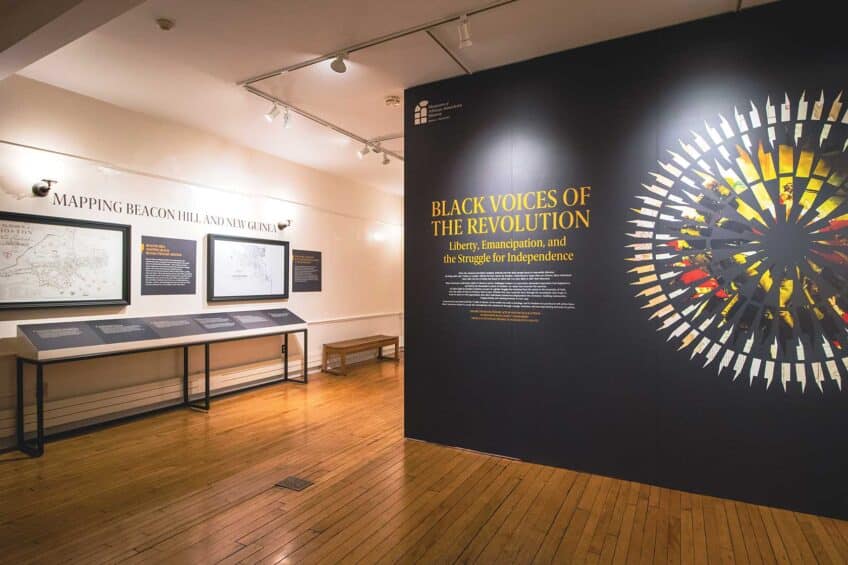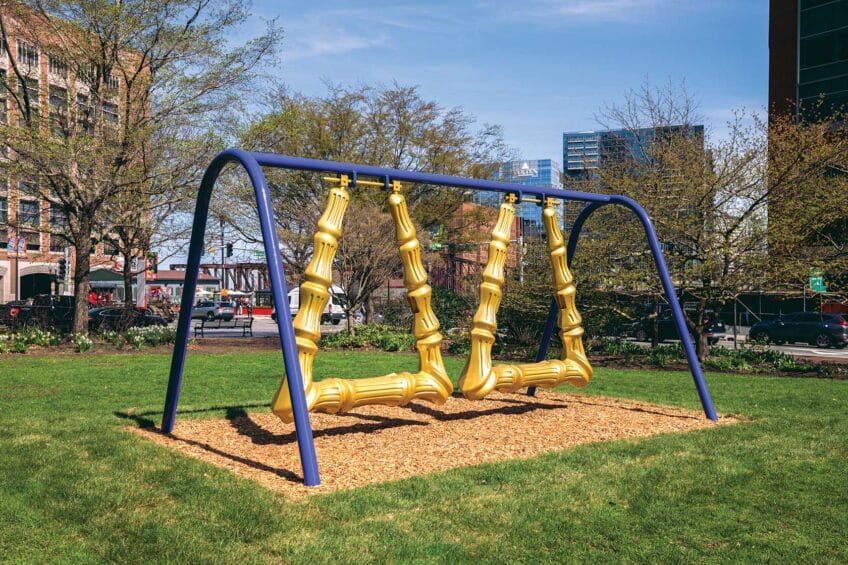‘Father Joseph’ documentary highlights work of Haitian priest Father Joseph Philippe
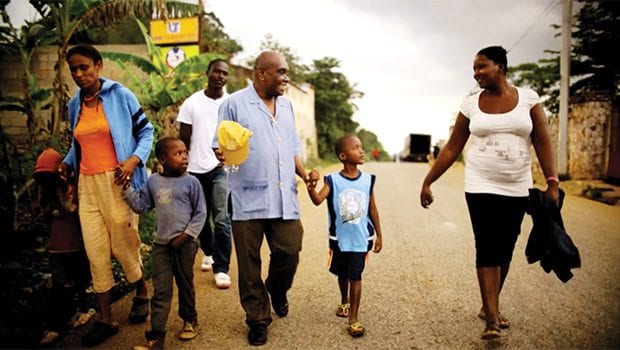
Jeff Kaufman came to Boston recently to screen his documentary “Father Joseph” at The Boston Foundation in conjunction with The Haiti Development Institute, The Institute for Justice and Democracy in Haiti, and the Raising Haiti initiative on October 7.
On the web
Produced by Floating World Pictures, “Father Joseph” DVD is available on DVD for purchase at www.raisinghaiti.org, where donations can also be made in support in the rebuilding of Haiti after Hurricane Matthew.
“When you actually spend time in Haiti, live in Haiti, you see how hardworking and entrepreneurial people are, and how much potential there is with everybody. Father Joseph’s vision has always been to empower the potential in people, and especially for Haiti—doing that through women,” said Kaufman of Haitian priest Father Joseph Philippe.
Philippe was scheduled to be in town that day for the screening and the Q&A, but returned to Haiti to assess the damage caused by Hurricane Matthew earlier that week.
Kaufman wrote, produced and directed the film about the Haitian Catholic priest who founded the country’s largest microfinance institution, Sevis Finansye Fonkoze, in 1994. The institution’s mission is to empower peasant women through literacy classes, small business training, and community-building loans.
Prior to this documentary, Kaufman directed and produced “The State of Marriage,” which won the audience award at The Globe Docs Festival in 2015. He also directed the 2012 documentary “The Savoy King: Chick Webb and the Music that Changed America,” about drummer and bandleader Chick Webb and Harlem’s legendary Savoy Ballroom.
The director first met Philippe at an event in Los Angeles. “I looked around and he was laughing and joking but also the one person not in a fancy suit. We started chatting and I thought ‘Oh my gosh, this guy is just amazing,’” recalled the director. Kaufman, who had been thinking about directing a film marrying faith and social justice, didn’t know if it would fit together or not, he said. “Every time I went to Haiti I was vetting father Joseph and he was vetting me, vetting us. We realized that he was the real thing,” said the director.
The documentary, which is available via iTunes, On Demand and other streaming services, is an intimate portrait of Philippe’s life and his passion to empower and equip Haitians with the tools to lift themselves out of poverty. It chronicles the literally life-changing work that he is doing in Haiti.
“I think people’s lives do really change when they take ownership of what they need to change, do it themselves, rather than to wait for someone to rescue them,” said Marcia S. Ross, the film’s producer.
Humble hero
Based in Fondwa, a small village in the western province of the Caribbean island between the towns of Léogane and Jacmel, Father Joseph helped to create the grassroots organization Peasant Association of Fondwa (APF) with the residents of Fondwa in 1988. Since coming to Fondwa, Father Joseph has also founded a 700-student K-14 school, an orphanage, a clean water project, a health clinic, and a radio station. In 2004, he founded The University of Fondwa, Haiti’s first rural and accredited college.
Of his work at the University, Father Joseph stated in the documentary, that “we are not doing emergency relief. We are doing sustainable development. We want to rebuild the country; that’s what I’m trying to do; to educate young people like Junior (Beauvais) to have a good education and to give back to the community what you have received.”
When the idea for the film was first floated by Kaufman to Father Joseph, the humble priest was against the film being made. “He didn’t want the movie. He didn’t understand why someone would want to tell the story,” said Ross. Born to peasant farmers in the mountains of Haiti, Father Joseph became a member of the Spiritan Catholic Holy Order, a Roman Catholic congregation of priests and lay brothers in 1982, where he was ordained as a priest. Father Joseph holds an undergraduate degree in accounting from the Université et Ecole de Commerce André E. Laroche in Port-au-Prince, Haiti, and a Master of Divinity degree from Catholic Theological Union in Chicago.
In the first year of the microfinance program, 10 branches were established. Today, there are 46 branches, 800 employees, and 250,000 savers in the program. However, getting financial and local support hasn’t always been easy. Over the years several of Phillipe’s close friends and colleagues were murdered because of their advocacy for the poor. And most recently, many of the businesses established over the past 25 years have been damaged or destroyed by the 2010 earthquake.
After Hurricane Matthew devastated the Fondwa region, Kaufman managed to speak with someone there who told him that there were “structures that had survived the earthquake that have now been torn down by the storm.” Kaufman noted that “Father Joseph has an amazing track record of rallying forces locally, hiring locally and rebuilding.”
Working with Father Joseph has been transformative for both Kaufman and Ross. “It’s the idea of living your life around purpose” that has been one of the key elements in Ross’ own growth. And Kaufman, who considers himself a cynical person, has seen firsthand that “The world can be made better if you get involved. We might not stop wars but we can change communities.”

